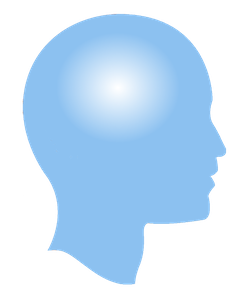Since the death of God was announced by Friedrich Nietzsche in 1882 people have been arguing about how we might come up with a moral code. If such a thing is not received from a supernatural source what possible authority could be considered worthy of providing infallible guidance? Certainly, human beings are not qualified. We have enough trouble agreeing on more mundane things like who to like on Facebook or what channel to watch.
So already we have ruled out supreme beings and human systems as authoritative sources for a reliable moral code. What’s left? Luckily a relatively new candidate for moral authority is on offer. Over the past hundred years or so a feature of nature has been revealed that has changed our understanding of the nature of reality. Previously it was thought that the universe consisted of separate, independent phenomena. This is still the way many people think of themselves. Sure we belong to families, communities, nations, cultures, and the human race but individually we live separate lives. Our selves are not connected to each other or the environment in any essential way. In compensation we have created institutional connections. We ascribe to clubs, political parties, religious groups, social media platforms, and so on.
The picture emerging across multiple scientific disciplines does not support this widespread assumption regarding the existence of separate independent phenomena. In fact, the scientific consensus now is that such independent entities don’t and cannot exist. The understanding now is that what appear to us as separate things are actually interdependent phenomena. The apple sitting in the fruit bowl on the kitchen table exists through an intricate web of interdependent relationships and conditions. Although it is no longer physically attached to the tree it grew on the connections it had then are what were required for it to come into being and to continue to exist. Without those connections the apple in the fruit bowl is now in the process of slowly decaying. And so it is with all living things from the simplest one-celled life forms to complex living beings like ourselves. There is no living thing that exists independently. Not you, not me, not the tree outside the window quietly turning carbon dioxide into oxygen, not the ant on the forest floor laboriously carrying a leaf fragment back to its nest.
The logical implications of this state of affairs have yet dawn on most of us. The big takeaway is that nature has been showing us how we should live all along but we have only recently been able to recognize this guidance. In order to survive living things must live according to the implications of their interdependent nature. It is important to recognize that the authority behind this imperative is not some imagined supernatural being, nor is it a speculative academic proposal. This moral foundation carries the indisputable authority of the nature of existence. As such it is not in any sense arbitrary. Nor is it optional. It is the way of living necessary for the continuance of the human race and life on Earth as we know it.
Within this understanding of existence values related to personal and collective survival and wellbeing emerge; values such as sustainability, cooperation, humility, compassion, inclusion, and contribution. These values can guide us toward moral behaviour. The morality arising from a full understanding of our interdependent existence is not a list of tenets but a means for distinguishing moral acts from immoral acts. Acts that respect our shared interdependent nature (eg. replanting a logged off area, sustainable farming) are moral. Those acts that intensionally ignore our interdependent nature (eg. overfishing a river, racism) are immoral.
This morality supports a global perspective and promotes long term considerations. Since interdependence is a universal principle it applies across nations and cultures. Taking the interdependent worldview to heart would go a long way toward addressing the global issues we are now facing. According to this understanding the causes of climate change, social injustice, and economic inequality are immoral because they are all in opposition to the reality of interdependent existence.
To answer the question in the title of this article, it is not so much that science is telling us how to live as it is a case of science helping us recognize what nature has always been showing us about how to live according to the interdependent nature of life. Our choices and behaviours should proceed according to an understanding of interdependent existence. To facilitate this our institutions and their policies should be in alignment with this perspective. In short, we are in need of nothing less than a total paradigm shift from the erroneous belief in the existence of independently existing phenomena to the recognition of the interdependent nature of existence.

